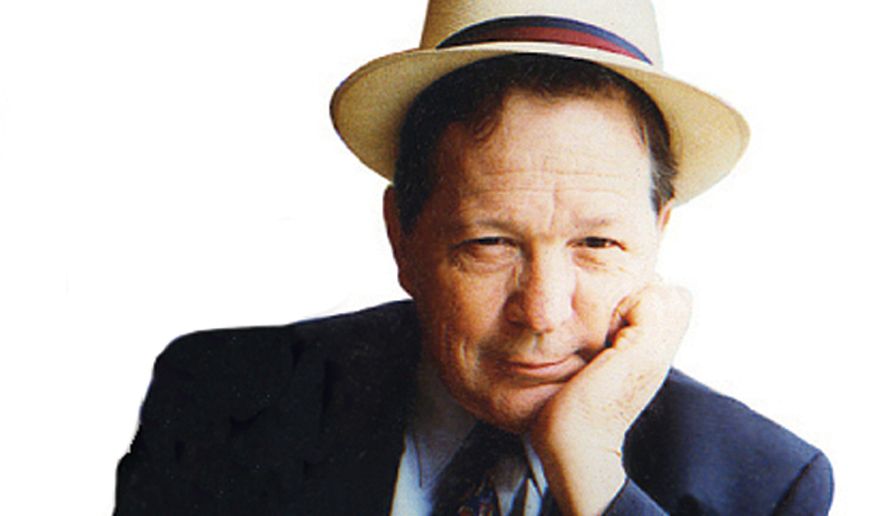When it came to Wes Pruden, the mystique was in the hat.
A straw boater placed carefully on his head, as he strolled into the newsroom and took the elevator to his expansive office on the mezzanine, with the glass windows that overlooked the newsroom.
The perfect vantage for being aware of what his reporters were doing, without having to be in the middle of us.
Hats were once a newsroom standard — occasionally accompanied in popular fiction and movies with a press card — when said newsrooms were peopled with crusty men shaped by tight deadlines and tough stories.
Mr. Pruden retained the hat well beyond the 1960s and 1970s, when fashions changed. Not Mr. Pruden, though. Hats had been correct for centuries, and the whims of fashion were never a good reason to ditch something that had withstood that much time.
Seeing Mr. Pruden come into work without his hat would have been like Scout seeing Atticus Finch remove his suit coat during the trial of Boo Radley.
One time, Mr. Pruden left his hat at an editors retreat in Alexandria, Virginia, as he headed back to the newsroom in Washington to decide on the next day’s front page. I, a lowly reporter at the time, got the assignment to ferry the hat back across the river to reconnect with its owner.
I was terrified by the responsibility. I owned only a convertible with no air conditioning, and it was summer, so I had to drive with the top down. Would it blow away? Would I be fired if it did?
I buckled the hat into the passenger seat and drove slower than the speed limit with one hand hovering between the stick shift and the hat’s dome, afraid of putting a dent in it but just as fearful of a wind gust carrying it — and possibly my reporting career with it — away at age 25.
I delivered the hat to Mr. Pruden’s secretary, hoping not to be asked to personally hand it over.
The man was mythical and mercurial and frankly scared me. What I knew of him came to me from stories the editors told of afternoon meeting lectures and from watching his edits of our articles. Once he touched a story, it was sacrosanct. One editor referred to his edits as the hand of God.
Later, I would come to appreciate Mr. Pruden’s kindness. It turned out he was actually a bit shy and could be awkward in personal interactions.
It was in his writing where his force of personality was most evident.
The world saw that in his columns, where a marvelous turn of phrase was waiting in every edition — along with a rapier aimed at the target of the day. Maine’s two moderate Republican female senators were the “weak sisters.” Bob Woodward became “Mortuary Bob” for his ability to report stories on information told him by someone recently deceased.
As the country reevaluated its attitudes on same-sex marriage earlier this decade, Mr. Pruden proclaimed that “sodomy is the latest hot thing in Washington,” adding that “closets are emptying all over town.” The politicians who pirouetted positions for political gain were the worst enemies.
Institutions were to be cherished in Mr. Pruden’s newspaper, old school was the school, and he would let us know the rules in the memos he would issue from his perch on the mezzanine that would appear on the newsroom bulletin board, shaping thousands of articles a year.
The rest of the news industry may have dropped the use of honorifics, but The Washington Times would maintain the custom because that’s what honorable newspapers had once done, Mr. Pruden wrote.
The practice of honorifics has become far more complicated in the 21st century, with sexual identity challenging long-accepted terms of reference, but The Times would not be swayed. Adults whose names appeared in the news pages, whether friend or foe, were given titles of Mr. or Mrs. or Miss the subsequent times they were named.
It was the great equalizer. Presidents and paupers were Mr. Bush or Mr. Smith on second reference.
Among the exceptions were the military, who were given the honor of their rank, and convicted felons still serving their debt, who were stripped of the honorific.
And then there was O.J. Simpson. One day, soon after the trial that acquitted Simpson, a ruling came from Mr. Pruden. Despite not being convicted, Simpson would lose his honorific, the editor had decided. Later, so did Saddam Hussein, who became “Saddam” on second reference, at Mr. Pruden’s orders.
Other Pruden memos warned of proper attire. While a jacket need not always be worn in the newsroom, a necktie was expected, even on Fridays. No “crispy chest hairs,” he ordered.
Anyone who thought to submit a joke story for the April 1 edition would be fired forthwith, he warned annually — though whether this was in response to a long-forgotten event, none of the reporters in the newsroom could say.
• Stephen Dinan can be reached at sdinan@washingtontimes.com.



